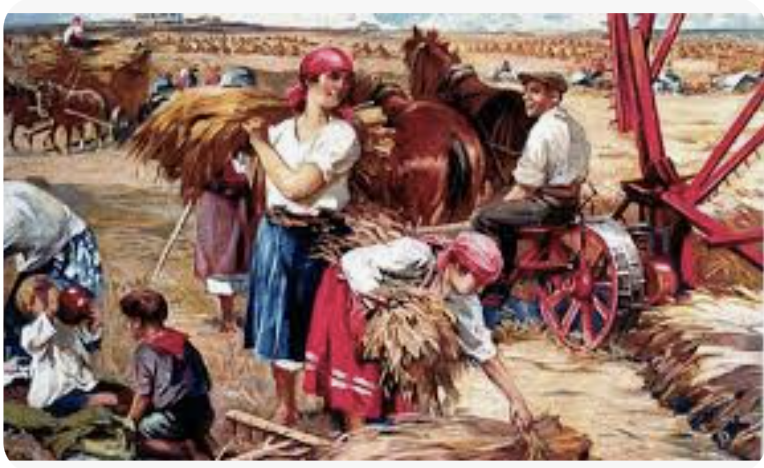Dutch collectivism advances towards its final triumph
/look, they’re smiling! Soviet citizens enjoy life on the state collective farm
David Strom, Hot Air:
By now you have heard of the Dutch farmers’ controversy.
The government of The Netherlands is buying out thousands of farms to meet idiotic climate change goals–under the theory that growing food is an unacceptable pollutant–and forcing the most productive farmers in the world to quit feeding people.
Understandably the farmers are upset and have been flexing their political muscle, but it all came to naught when talks between the government and the farmers collapsed. Plans to forcibly close the farms are moving forward. 3000 farms will go “poof” and somehow the climate will be saved.
Having tasted the pleasure of totalitarian power, the government of The Netherlands is expanding its use of arbitrary power for ideological reasons and has decided to essentially take over the housing market, deciding who can and cannot buy homes, and what price private homes may be sold at.
Not even animals will be spared
By MAUREEN HANSON July 14, 2022
Via a first-in-the-world regulatory push, “the tiny country that feeds the world,” is facing monumental alteration of its agricultural industry.
The Netherlands ranks second only to the United States in global agricultural exports, and is the European Union’s largest meat exporter. It accomplishes these feats on a land base that is approximately 270 times smaller than that of the U.S. For perspective, the European ag powerhouse is approximately one-third the size of the state of Wisconsin.
But sweeping environmental policy change threatens to upend that productivity, along with the lives and livelihoods of the farmers who make it happen. In December 2021, the Netherlands Environmental Assessment Agency released a 13-year, 25-billion-euro plan to cut nitrogen oxide and ammonia emissions by 50% by 2030.
The Netherlands currently has the highest density of livestock in Europe, with more than four times the food animal population of the UK or France.
The plan in its current state would reduce the Netherlands’ population of cattle, pigs, and poultry by roughly 30%. The potential methods of doing so include voluntary buy-outs, relocation, and even expropriation – forced sale of emission rights and even land itself to the state.
Dutch farmers are asking for more time and assistance in adopting emission-reducing technologies, rather than culling animals or shuttering farms altogether. Many also believe agriculture is being targeted disproportionately compared to other industries. And they view the threat of expropriation as a bad-faith act of government overreach, motivated by the government's desire to acquire high-priced Dutch farmland cheaply.
And:
I won’t look for it now, but a month-or-so ago I read an article on a new, 1000-unit “green” apartment building under construction by the Dutch government. Asked about residents’ charging stations for the soon-to-be-mandated electric car fleet, the architect told the interviewer that there would only be 10 — “we expect our residents to walk or bicycle”.
Coming our way, and very soon.


